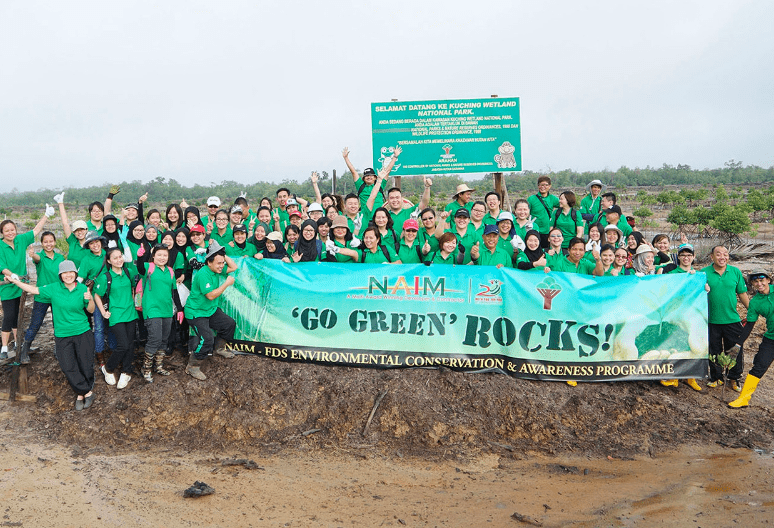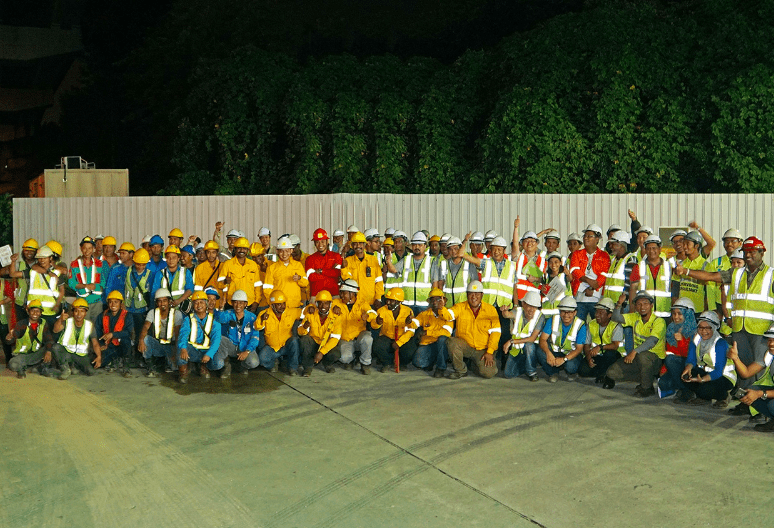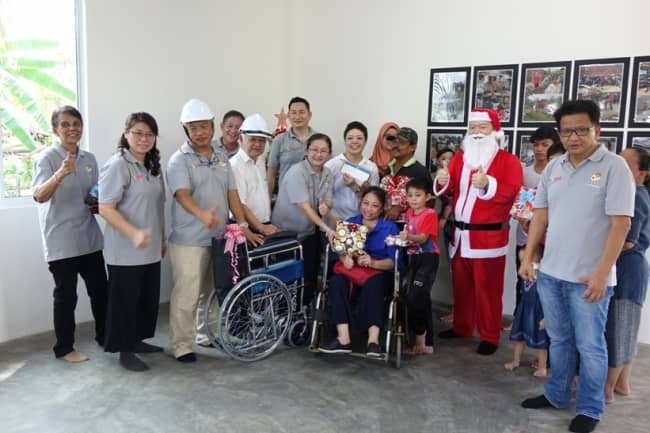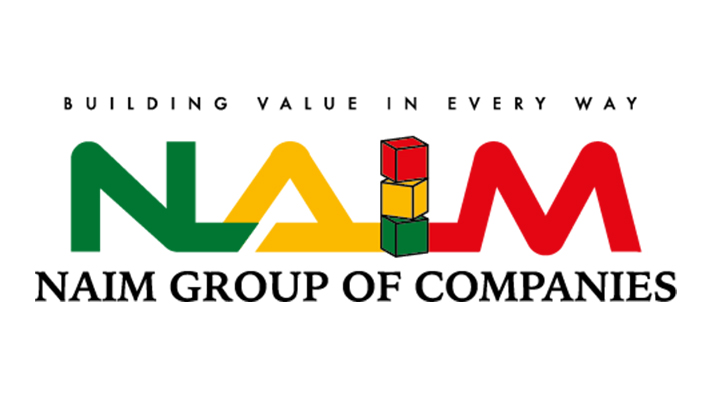AN amalgamation of an Arabic word, Naim, for heavenly and a Sanskrit word, Cendera, for moon, Naim Cendera Holdings Berhad is the holding company for its 100 per cent-owned subsidiary, Naim Cendera Sdn Bhd (NCSB), which is primarily involved in property development and construction.
NCSB was formed on April 12,1993 and has been active in the property and construction fields since Sept 1995. It focuses its business efforts on two principal areas – integrated property developments combining residential, commercial and industrial properties with infrastructure and public amenities; and contracting of construction, civil engineering and infrastructure projects.
The Class A Bumiputera contractor with ISO 9001 certification, NCSB is primarily involved in property development and construction and has been listed on the Main Board.of Bursa Malaysia Berhad since Sept 12, 2003. Since then it has gone on to establish itself as the largest development group in Sarawak in terms of units completed, according to leading industry analysts CH Williams Talhar Wong & Yeo Sdn Bhd.
NCSB focuses on excellent quality and timely delivery, a philosophy that has earned the company a host of industry awards. The Naim Group has also ventured into the oil & gas sector and that after a successful acquisition and listing exercise, it now holds 36 per cent of award winning oil and gas services group Dayang Enterprise Holdings Berhad.
The Naim Group’s meteoric rise to become Sarawak’s leading property developer began in 1995 when Naim Cendera Sdn Bhd commenced operations.
Back to 1995, inspired by the unfulfilled need of affordable housing in Sarawak at the time, Hasmi founded the NCSB with his business mentor Datuk Abdul Hamed Sepawi as chairman. His primary objective was to execute a completely new approach to property development when low-cost housing was seen by the industry as a weight around developers’ necks.
Contrary to popular skepticism within the industry, Hasmi felt that a well-executed low-cost housing project could form the vital core of a successful satellite township, attracting new residents by turning a previously uninhabitable region into a fully-functioning estate.
Hasmi’s methods were as comprehensive as the townships he planned to develop. His idea was with an efficient and cost-effective strategy from the start, more could be spent on workmanship and materials to produce durable, accessible, high-quality housing. Besides, in order to create affordable housing, land acquisition needed to be reasonably priced before he could convert the swampy peat land into a golden residential area.
To him, by maintaining the philosophy of high quality products for affordable prices, he would revolutionise the concept and wipe away the stigma associated with the term ‘low-cost housing’.
In addition to creating a gateway for a vibrant, new living community, essential social amenities like parks, playgrounds, community halls, police stations as well as centres of worship for all major faiths would need to be in place in order for them to be fully-integrated townships. He also perceived that this development would generate enough profit to fund future developments if it was well-managed.
In order to leverage a contract to construct a satellite town of affordable housing, NCSB took on a low-cost housing project for the government, located on poor quality peat swamp land at Tudan, some 15km from Miri town centre.
Through meticulous land ‘rehabilitation procedures, the company was able to produce good quality homes within the targeted price range and still yield a reasonable profit.
Subsequently, these funds were used to further rehabilitate adjoining peat swamp land and transform it into NCSB’s first flagship satellite township, Bandar Baru Permyjaya, which over the years has become one of the most popular and successful suburban developments in Malaysia.
With a total GDV of over RM3 billion, the success of Bandar Baru Permyjaya made further developments in Kuching and Kota Samarahan possible. In turn, the construction experience obtained gave NCSB the opportunity to branch out into major contracting works. Since then the company has completed construction and civil works projects worth over RM1 billion, with an order book amounting to more than RM3.4 billion.
Building on the success of Bandar BaruPermyjaya, the company began work on two further mini-townships in the Kuching area, Desa Ilmu and Riveria. Desa Ilmu provides affordable homes in a variety of price categories, leveraging the educational and technological attractions of Kota Samarahan, Kuching’s high-tech satellite town, including leading universities and’ the Sama Jaya free industrial zone.
Riveria, by comparison, trades on its desirable location in Kuching is booming southern corridor, yet remaining highly competitive on both price and quality. Thanks to the success of these three developments, the Naim Group has been able to complete over 15,000 homes between 1996 and 2007, at the phenomenal rate of over four units daily.
The key to the success of the Naim Group’s projects is not simply affordability. They are all designed as fully integrated townships, with facilities and amenities in place, so that buyers are able to move straight into fully functioning communities. They are all situated within easy reach of the workplace, schools, shopping and other amenities, with direct links to key transport infrastructure such as airports and highways. Besides, they all reflect the Naim Group’s commitment to quality and livability, with all homes built to strict quality standards and handed over on time or ahead of schedule.
Thanks to rigorous financial planning and management, Naim’s excellent performance in executing its projects has been translated into a number of remarkable financial achievements.
The group has grown exponentially, with net assets multiplying 81 times frjam RM6.6 million in 1996 to RM539.3 million at the end of 2007.
Its annual pre-tax profits have enjoyed a CAGR of over 28 per cent, over the last 11 years. And it has added tremendous value for shareholders: Since its highly successful listing on the Main Board of Bursa Malaysia in 2003, shareholders have enjoyed a 256 per cent return oh their investment in less than 5 years.
Hasmi’s initial revelation of converting low grade land into high-value residential estate accommodating a lively, flourishing community, now seems highly revolutionary.
As with any ground¬breaking idea, however, this plan wasn’t without personal risk and hardship.
In order to raise the preliminary RM500,000 in capital, Hasmi was forced to mortgage his family home and borrow funds from friends. He even went from office to office petitioning for the free services of architects and other consultants, convincing them of the project’s potentials. It was a crushing time for both he and Hamed, who scarcely saw their family during their petitions for financial and professional assistance around the state.
Despite the crunch, however, Hasmi never gave up on delivering his products on time and maintaining his focus on customer satisfaction. Once the low-cost housing project in Tudan was completed (with very high buyer satisfaction), work began on Bandar Baru Permyjaya.
There was a great deal of market skepticism about such a satellite township project, but Hasmi won over the house-buying public by: one, focusing on excellent quality at comparatively low prices; two, offering timely delivery and a first class after-sales service; and three, by ensuring that all public and commercial infrastructure and facilities were in place before buyers moved into their homes.
‘Customers are the best advertisement’ is Hasmi’s guiding principle. Through focusing on fully comprehensive after-sales services, he built up NCSB as a reputable residential brand thereby securing the confidence of current homeowners as well as potential buyers.
So successful was the model that the entire strategy was repeated at Desa Ilmu, another satellite township at Kota Samarahan, Kuchingis high-tech satellite town. At the same time, Naim expanded into contracting and civil works, purposely seeking out the more challenging contracts, and delivering its projects ahead of schedule – and to remarkably high quality standards. All the time, Hasmi and his management team and staff focused on two key objectives – to build not merely houses, but vibrant living communities, and to deliver not simply completed projects, but national assets of lasting quality and value.
The Naim Group’s future prospects appear as promising as its past performance. The huge land bank of over 2,800 acres has a projected GDV of RM5 billion and is continually expanding, while the construction division has an order book of some RM3.4 billion.
The group is also investigating innovative property products and new construction techniques as well as a strategic diversification into oil and gas contracting. It is also currently looking at new markets, both in Peninsular Malaysia and overseas. The workforce that will implement these initiatives has grown from a small team of 15 people in 1995 into a sizeable army of over 700 highly skilled professionals.
Naim’s success in the property field has also provided the opportunity for expansion into the construction sector, and the group has leveraged its expertise to complete over RM1 billion of contracts throughout Sarawak.
All have been completed on time or ahead of schedule, and have attracted a host of quality awards along the way. Thus the Naim Group became the first company in Sarawak to win one of the coveted CIDB awards – a feat it has now repeated a further three times – and the first company in Sarawak to win the highly prestigious ‘Builder of the Year’ award.
Despite this phenomenal growth, Hasmi is quick to assure investors that Naim Group will maintain its focus on affordable housing and quality construction, saying: “We built this company by creating vibrant, people-friendly communities, and by delivering national assets of quality and value. That’s what we’re best at, and that will remain the core of our business for the foreseeable future.”
(Taken from Borneo Post)










